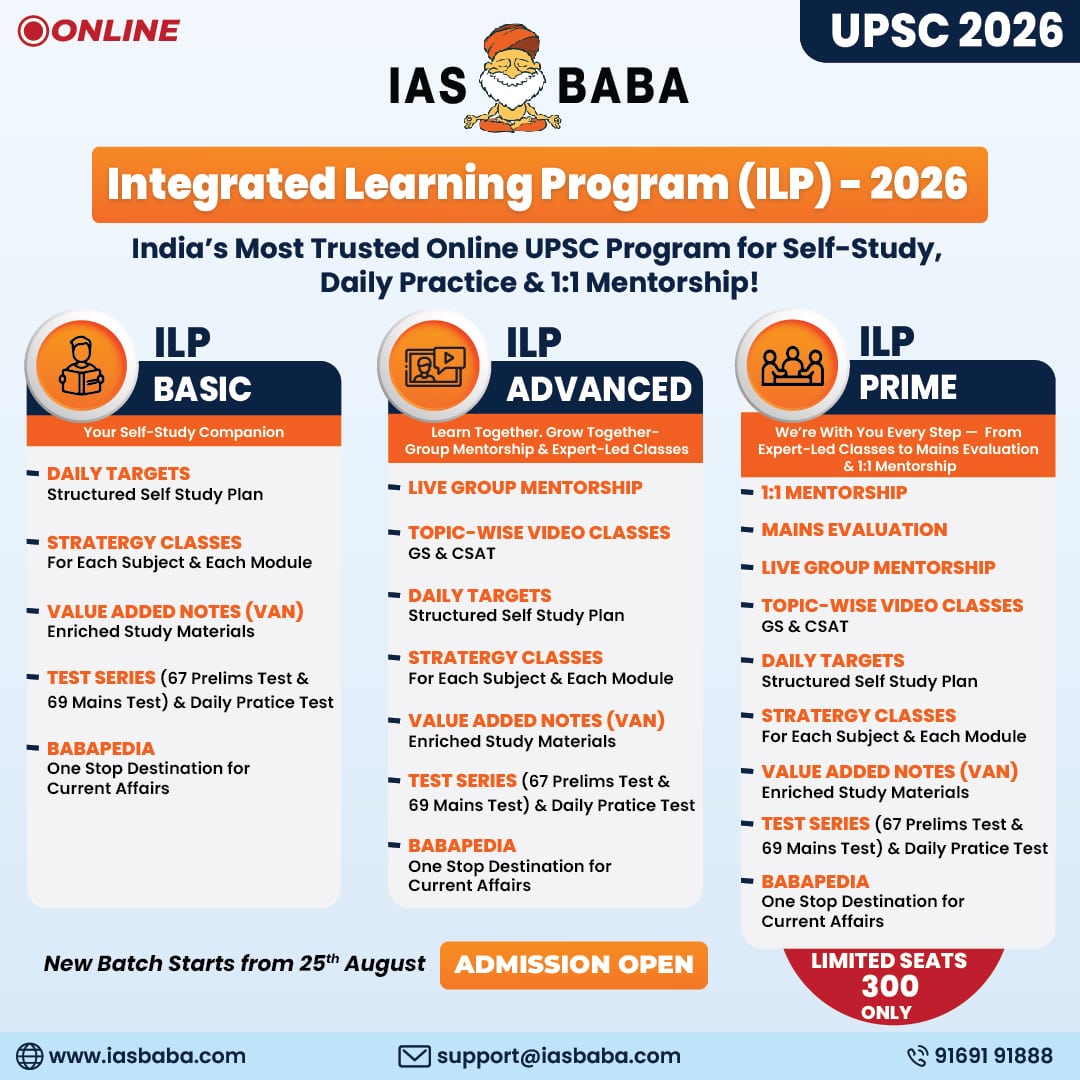IASbaba's Daily Current Affairs Analysis, IASbaba's Daily Current Affairs Nov 2016, International, National, UPSC
Archives
IASbaba’s Daily Current Affairs – 7th November, 2016
INTERNATIONAL
TOPIC: General Studies 2
- India and its neighbourhood- relations.
- Bilateral, regional and global groupings and agreements involving India and/or affecting India’s interests
- Effect of policies and politics of developed and developing countries on India’s interests, Indian Diaspora
Shortfalls in India’s Foreign Policy
India’s Contemporary Foreign Policy
The present Prime Minister of India has been responsible for contributing with a lot of his zeal and personality to impact policies, impart more heft to the processes important for security and international relations. The government has displayed a lot of enthusiasm for foreign and security policy.
It has constantly focussed on relations with China and America, the diaspora, the immediate neighbourhood through Neighbourhood First Policy. However, there are still lacunae in the foreign policy and yet the country’s strategic thinking continues to be guided by bureaucratic, adhocism, tactical considerations, and political expediency.
Weak links in the foreign policy
Confinement to South Asia
- In spite of global aspirations, the geopolitical focus remains on South Asia.
- India’s unending dispute with Pakistan and over emphasis on the issues involved uses a lot of its resource.
- Raising Baluchistan issue as a counter against Pakistan repeatedly suggests an error in prioritisation and waste of resource and energy.
- China is a major challenge in South Asia with its increasing economic and military influence.
- India needs to be cautious of America’s diminishing influence and strategic realignments.
Excessive focus on terrorism
- New Delhi’s diplomatic efforts are increasingly focussing on the issue of Pakistan-backed terrorism and it brings along a lot of challenges mentioned below.
- America’s hypocrite approach.
- Shows how our foreign policy is more tactical rather than strategic and might only be of use in the domestic political arena.
- This approach has compromised India’s strategic relationship with China since China is unwilling to agree to India’s stand against Pakistan.
- This undue focus on Pakistan-based terror has also lowered the Prime Minister’s credibility and repute as a leader working towards governance, trade and growth.
- Matters of greater importance such as foreign direct investment, global partnerships, institutional reforms, economic diplomacy have taken a back seat.
- It has led to internationalisation of the Kashmir issue which India has traditionally avoided.
Alliance management
- There are hints that India’s shifting stand from the traditional approach to maintain strategic autonomy. Signing of the ‘Logistics Exchange Memorandum of Agreement’ (LEMOA) and its relationship with America is an example
- India needs to check its approach of shifting alliances from China to Russia to USA.
- With China already growing so close to Pakistan, India needs to be cautious of the growing proximity between Russia and Pakistan.
- India needs to have an independent stand rather than being viewed as an ally of USA
- India is now also trying to counterbalancing China through Vietnam in the South China Sea. India is not wrong on articulating its interest in the Indian Ocean but it should rethink the strategic of interfering in the South China Sea.
Well planned strategic framework
- India lacks a policy blueprint.
- Diplomatic subtlety is lacking in handling international affairs. Sustained and mature negotiations should be resorted to rather than public spats.
Way Forward
- Intellectual depth and an ability to adopt a strategic approach rather than a tactical one.
- Institutional reforms such as coordination and follow-up action on the government’s key initiatives.
- Human Resource development to make defence ministry bureaucrats specialists in areas of foreign policy.
- Adequate staffing of Ministry of External Affairs (MEA).
- Clarity on basics and purpose to ensure focus and prioritisation of the government’s goals and objectives.
- Regularly set up highly specialised groups to generate policy reports and perspective planning for policymakers.
- Structures and teams within the government, other than the bureaucrats, to ensure strategic thinking in a purposeful manner.
- Adoption of a comprehensive national security doctrine to tackle insurgencies, manage borders and fight cross-border terror.
- Well-articulated strategic doctrines or vision documents which will be referred to by institutions and government departments.
- Policies will be adjusted to such doctrines to ensure more coherence in the country’s strategic behaviour.
- Political consultation, careful scenario building, and net assessment by experts while drafting the national doctrines.
Conclusion
The challenge is to ensure that the country can be a great democracy and also a substantive global power. There is a need to align these twin goals to reinforce the idea of India. Outcomes must ensure both power for the country and happiness for its people.
India needs to invest in grand strategic thinking which can only flourish if and when the political class commits to institutional reform, intellectual investment and consensus building.
Connecting the dots
- Critically analyse India’s foreign policy initiatives in the last 2-3 years.
- Discuss the essential changes required in India’s foreign policy.
NATIONAL
TOPIC:
General Studies 2
- Government policies and interventions for development in various sectors and issues arising out of their design and implementation.
General Studies 3
- Role of media and social networking sites in internal security challenges
Banning the media: Where should the lines be drawn?
In news: The Information and Broadcasting Ministry has put a 24-hour ban on the television channel NDTV India over its Pathankot coverage by invoking the Cable Television Networks (Amendment) Rules, 2015, on the ground that the channel broadcast ‘crucial information’ which compromised national security.
A case of government overreach
- In 2015, a clause was added to Cable Television Networks Rules which prohibited live coverage of any anti-terrorist operation by security forces and restricted media coverage to periodic briefing by a designated officer ‘till such operation concludes’.
- However, it is silent on whether it is mandatory for the government to designate an official spokesperson to give out information.
- Any violation of the code allows the government to order a channel to go off air for a period of time. The action against NDTV India marks the first time the new clause has been used to punish a TV network.
- This step by government has brought forward the extensive powers the government is holding where ideally, such powers should be in the hands of a quasi-judicial body independent of the government.
- If NDTV decides to challenge the government action in court, there could be expected set of guidelines that narrow the interpretative powers of the government. However, if the government is allowed to go unchallenged, it may create a dangerous precedent for overuse and misuse of such provisions in the future.
Caution against the coverage
- The coverage of military operations has always been a tricky terrain. But the beginning of the hyper-information age in combination with unbalanced warfare’s growing footprint has added immensely to the challenges.
- As seen in 26/11, the terrorists in Mumbai were being regularly briefed by their handlers in Pakistan about the operational deployments of the Indian security forces by gathering the source from the live coverage of several TV networks.
- Today, global media houses like CNN, BBC and Al Jazeera and also Indian TV networks have learnt the lesson of remaining at a respectful distance from the theatre of operation.
- In the Pathankot case, according to the inter-ministerial committee that inquired into the charge, the disclosure of details relating to the location of the ammunitions depot, the range of weapons and military assets available there and the presence of civilian residences in the vicinity could have been used by terrorists to their advantage.
- NDTV’s defence was that nothing was disclosed that was not published or aired by other media outlets, that its reportage was largely based on official briefings and that it was done in a responsible manner.
Constitutional support
- The right of the media to report news as it happens is constitutionally guaranteed under Article 19(1)(a). This extends to viewers and readers who have a right to know.
- No doubt, there are ‘reasonable restrictions’ on the information provided. In this case, the Cable Television Network Rules are replica of reasonable restrictions to free speech under Article 19(2) of the Constitution.
- In it, the central government is empowered to ‘regulate or prohibit the transmission or re-transmission of any channel or programme’ if it is necessary or expedient to do so ‘in the interest of the sovereignty, integrity or security of India, friendly relations with any foreign State or public order, decency or morality.’
- And thus, here, it has to be known if the impugned content fell within the constitutional test of ‘clear and present danger’.
- In Shreya Singhal v. Union of India, the Supreme Court cautioned the authorities against any ‘insidious form of censorship which impairs a core value contained in Article 19(1)(a)’ and has a ‘chilling effect on the freedom of speech and expression.’
What should have been done?
- The covert use of state power to keep the press, particularly television media, aligned with the government’s purposes, has produced something far more insidious than censorship.
- The Ministry could have either approached the authority, which is headed by a former Supreme Court judge or formed an independent panel to adjudicate the question Instead of imposing a blanket ban on all live coverage of any anti-terrorist operation until it ends.
- The ministry has cited statutory provisions that empower the government to regulate or prohibit the transmission of TV programmes. There is no mention of any provision for appeal. None can reasonably argue that irresponsible live coverage of an ongoing operation should attract no penalty.
- A problem arises when the penalty is decided by a government panel. Taking a channel off air for however brief a period is a serious decision that could be read as a signal to other newsrooms to self-censor.
- A committee of officials is not the ideal body to make an independent assessment of what constitutes information that poses an imminent danger to military personnel or civilians. That is the job of an independent forum.
Conclusion
- The media has to be allowed to remain a watchdog and leave the interpretation of ‘national interest’ to courts.
- Indian media should also strive to improve the quality of its self-regulatory institutions and frame better guidelines to deal with conflict coverage.
Connecting the dots:
- The decision to ban the media for alleged ‘breach of national security’ threatens the fundamental rights of freedom to express. Do you agree? Examine.
- The phrase ‘in national interest’ has attracted lot of censorship to freedom of speech and expression. Critically analyse the impact of actions taken in protecting the ‘national interest.’
MUST READ
Looking for a humane solution
Over the barrel: A swadeshi index
GST, in sight
Fifth Column: A time to speak out
Poor people’s access to financial services on the rise in India
The middle class leaves its stamp on GST
Why Kashmir is going in reverse gear
Swachh air
Dangerous deification of the armed forces












